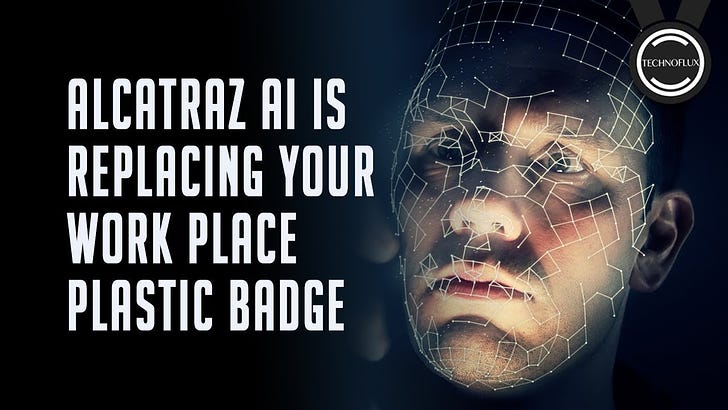Facial Recognition and Buildings
Plus 1 Funding, 6 Pieces of News, 9 Worthwhile Articles, and a couple Podcasts
Facial recognition has been a promising technology for a while.
Companies like AnyVision, FaceFirst, Alcatraz, TrueFace, and several others have been trying to have tenants of commercial and residential buildings use their facial profile to unlock doors for years.
And it’s been . . . interesting.
We found out that most of these tools were based on facial profile databases with some inherent racial and gender biases.
We also found out that many of these are prone to spoofing. (Think about holding up a high-def picture of your friend’s face in front of your own).

Plus, they are prone to inaccuracies with lighting problems, facial hair, hats etc.
(If you want to nerd out on this, check out the MegaFace competition here.)
Still, most security experts say facial recognition software is far superior to key cards, fobs, phone apps, or anything else. Most think it will be the future of opening secure doors.
And that’s probably true.
We just don’t know when.
We do know it won’t happen in Portland any time soon. (See News below). Probably not in Oakland, Boston, or SF either.
These cities have all banned facial recognition in one way or another.
They have their reasons and this is not the place to explore that, but I do think it’s an interesting reminder for those of us who follow the space.
Just because you have the best technology for the problem doesn’t mean you’ll get the adoption you need/want.
There are other forces (political, social, financial, and otherwise) that will affect your product’s adoption.
I bring this up because it flies in the face of a narrative I see all too often with tech-first founders: great tech will sell itself.
No. It won’t.
(At least not in real estate tech.)
Most thoughtful founders know this, but I think it’s worth reiterating for younger or less-experienced founders who get (justifiably) lost in the weeds on awesome product features.
Your sales strategy to building owners matters MAYBE more than anything else (assuming the product actually, you know, works). And things outside of anyone’s control can come up . . . like they just did in Portland.
What’s your plan if something like that happens?
On to this week’s deal and data:
Fundings:
I’m not really sure what they do, but Amber Solutions and their “electrical architecture” platform raised $5.5M from . . . someone.
News:
Portland just announced a big ban on facial recognition and it matters for us.
In addition to Brooks Brothers (and Lucky Brand), it looks like Simon wants a piece of JC Penney too.
Hudson Pacific is carbon neutral. Expect to see more of this.
Coliving startup HubHaus is shutting down.
Looks like Kroger’s tech bets haven’t quite panned out. ($)
I’m not sure if this is tech-related, but IKEA is launching a mall is CA!
Articles:
Steve LeVine explores the huge, tangential markets that are affected by the change in our interactions with office space.
Blokable thinks American housing is working exactly the way it was designed to.
Our friend Joe published his (always thoughtful) monthly newsletter on smart buildings.
Dror muses on what cities can learn from offices.
Propmodo digs into the new arms race in apartments: digital amenities.
Goodwin wraps up their series on the new normal of real estate post-COVID.
Three ways COVID-19 is reshaping retail.
Motley Fool takes a swing at Real Estate Venture Capital.
Fifth Wall got some love from Forbes.
Funds:
Paid Subscribers Only.
Listen:
Don’t buy the negative stereotypes of “the pivot.”
This week’s Nexus podcast has Aquicore founder Logan Soya.
Thanks for reading!
Our next subscribers-only virtual happy hour will be Friday September 18th at 7 EST/4 PT. If you want to join, become a paid subscriber and I’ll get you on the invitation!
If you learned something from this newsletter, please send it to a friend. If not, send it to someone you hate and help me clog their inbox.
If you have any financings, articles, or suggestions for me, please reply to this newsletter and tell me what’s shaking.



